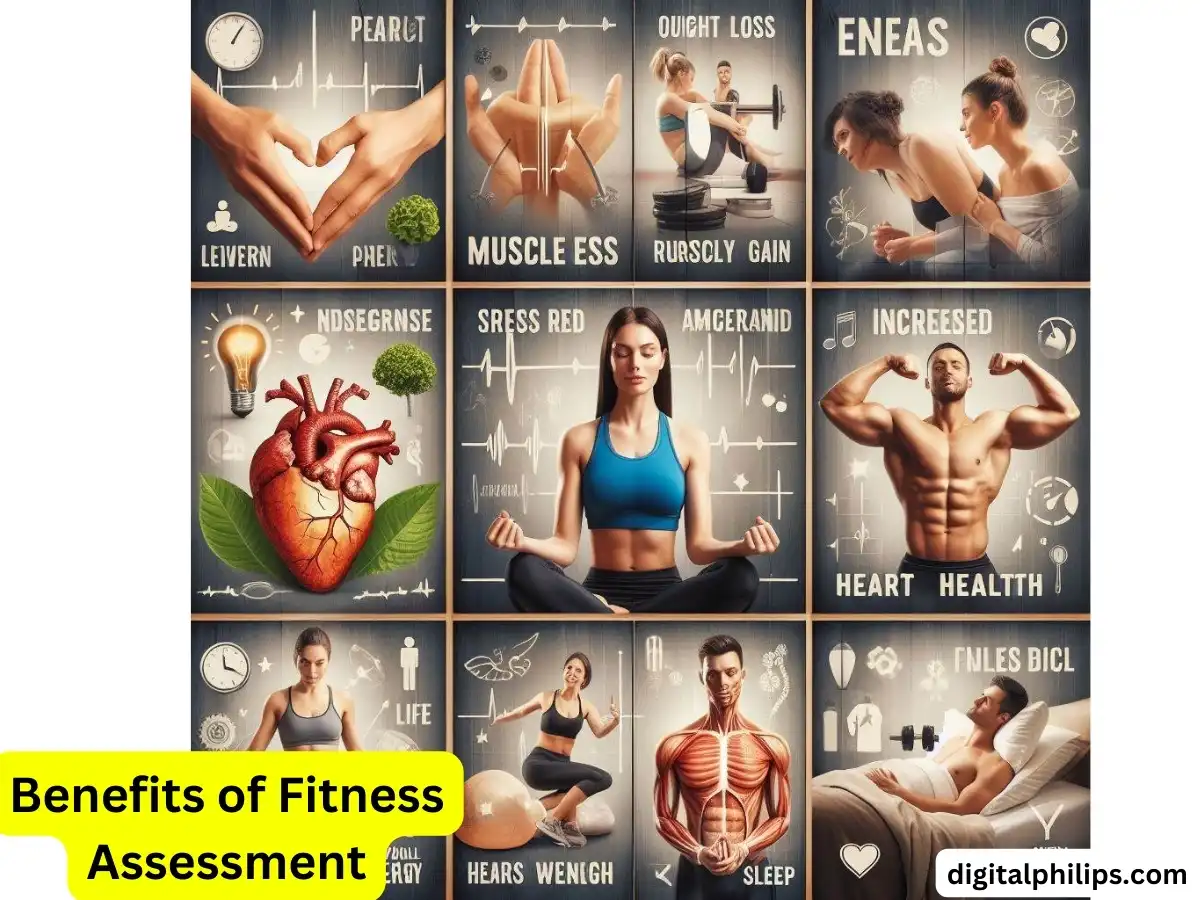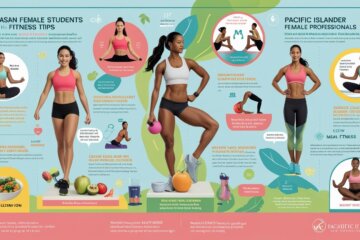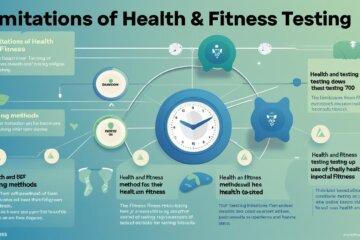Fitness assessment helps individuals understand their current fitness level and identify areas for improvement, providing a baseline for setting realistic goals.
A fitness assessment is a valuable tool for anyone looking to improve their health. It evaluates various aspects of physical fitness, such as strength, flexibility, and cardiovascular endurance. This comprehensive evaluation helps individuals understand their strengths and weaknesses. Personalized fitness plans can then be tailored to address specific needs and goals.
Regular assessments also track progress, keeping motivation high. They can prevent injuries by identifying potential risks early. Overall, fitness assessments pave the way for a more effective and safer fitness journey. They are essential for anyone serious about optimizing their health and performance.
Introduction To Fitness Assessments
Fitness assessments are crucial for every individual. They help in understanding one’s physical abilities and limitations. These evaluations provide a baseline for tracking progress and setting goals. They are essential for crafting personalized fitness plans that are safe and effective.
Purpose Of Fitness Evaluations
The primary purpose of fitness evaluations is to gauge the current fitness level. They identify strengths and weaknesses in various fitness areas. This helps in creating a tailored workout plan. Another key purpose is to monitor progress over time. Regular assessments can highlight improvements and areas needing more focus.
Key Components Of A Comprehensive Assessment
A comprehensive fitness assessment includes several key components:
- Cardiovascular Endurance: This measures how well your heart and lungs work during exercise.
- Muscular Strength: This assesses the maximum force your muscles can exert.
- Muscular Endurance: This evaluates how long your muscles can perform a specific task.
- Flexibility: This checks the range of motion in your joints.
- Body Composition: This determines the proportion of fat to lean mass in your body.
Each component is vital for a balanced fitness regime. Ignoring any one aspect can lead to imbalanced fitness and potential injuries.
| Component | Description |
|---|---|
| Cardiovascular Endurance | Heart and lung efficiency during exercise |
| Muscular Strength | Maximum force muscles can exert |
| Muscular Endurance | Duration muscles can perform a task |
| Flexibility | Range of motion in joints |
| Body Composition | Proportion of fat to lean mass |
Understanding these components helps in achieving overall fitness. It ensures that all aspects of physical health are addressed.
Setting Personal Health Benchmarks
Fitness assessments are crucial for everyone. They help you set personal health benchmarks. Knowing your fitness level is the first step toward improvement. It allows you to track progress and stay motivated.
Establishing Baseline Metrics
Establishing baseline metrics is the first step in a fitness assessment. These metrics include weight, body fat percentage, and muscle mass. Each metric offers a snapshot of your current health. This snapshot helps you understand where you stand.
Fitness assessments also measure flexibility, endurance, and strength. These factors are essential for a comprehensive health overview. They help identify areas that need improvement.
| Metric | Measurement |
|---|---|
| Weight | Body weight in pounds or kilograms |
| Body Fat Percentage | Percentage of body fat |
| Muscle Mass | Mass of muscles in the body |
| Flexibility | Range of motion in joints |
| Endurance | Ability to sustain physical activity |
| Strength | Force muscles can exert |
Measuring Progress Over Time
Measuring progress over time keeps you accountable. Regular fitness assessments are essential. They show how far you’ve come. This visual progress keeps you motivated.
Tracking improvements can be simple. Use a journal or an app. Record your metrics regularly. Compare them to your baseline metrics. This helps you see your gains.
- Increased muscle mass
- Reduced body fat percentage
- Improved endurance
- Enhanced flexibility
- Greater overall strength
Seeing your progress in black and white is motivating. It encourages you to keep pushing forward. Small wins add up to big changes over time.
Tailored Exercise Programs
Engaging in regular fitness assessments can significantly enhance the effectiveness of your workout regimen. One of the key benefits is the development of tailored exercise programs that cater to your specific needs and goals. These programs ensure that you achieve maximum results while minimizing the risk of injury. Let’s explore how personalized exercise plans can transform your fitness journey.
Designing Individual Workouts
Fitness assessments help in designing individual workouts that align with your fitness level and goals. By understanding your strengths and weaknesses, trainers can create a customized plan. This ensures that you focus on areas that need improvement while maintaining your strengths. Individualized workouts keep you motivated and engaged, leading to better adherence and progress.
Preventing Overtraining And Injury
Personalized exercise programs are crucial in preventing overtraining and injury. A fitness assessment identifies your physical limitations and potential risk factors. With this information, trainers can design a balanced workout plan that avoids excessive strain on any particular muscle group. This approach minimizes the risk of injuries and ensures a safe and effective fitness journey.
| Benefits | Description |
|---|---|
| Customized Plans | Workouts tailored to individual needs and goals. |
| Enhanced Motivation | Personalized workouts keep you engaged and motivated. |
| Injury Prevention | Balanced plans reduce the risk of overtraining and injuries. |
- Improved Efficiency: Focus on exercises that matter most.
- Better Results: Achieve your fitness goals faster.
- Increased Safety: Minimize the risk of workout-related injuries.

Credit: newfitnesshealth.com
Motivation And Goal Setting
Understanding the benefits of a fitness assessment is crucial for every individual. One of the key areas it enhances is motivation and goal setting. With clear goals, staying committed to a fitness routine becomes easier. A fitness assessment helps in creating a roadmap for success.
Creating Achievable Targets
A fitness assessment helps in creating achievable targets. It provides a clear picture of your current fitness level. Based on this, you can set realistic goals.
Setting small, attainable goals keeps you motivated. It also allows you to track progress over time. This sense of achievement boosts your confidence and keeps you going.
For example, if you aim to run a 5K, a fitness assessment can help. It will tell you your starting point. From there, you can create a step-by-step plan.
| Current Fitness Level | Short-Term Goal | Long-Term Goal |
|---|---|---|
| Can walk 1 mile | Run 1 mile | Complete a 5K |
| Can lift 10 lbs | Lift 20 lbs | Lift 50 lbs |
Enhancing Commitment To Fitness
A fitness assessment also plays a vital role in enhancing commitment to fitness. It provides a baseline that you can always refer back to. This keeps you accountable and focused on your goals.
Having clear goals and seeing progress makes it easier to stick to a routine. You are less likely to skip workouts because you know they are part of a bigger plan.
Additionally, the assessment helps in identifying areas that need improvement. This makes your fitness journey more personalized and effective. It ensures that every effort you put in counts.
- Tracks progress and milestones
- Keeps you accountable
- Identifies areas for improvement
- Makes fitness routines more personalized
Identifying Health Risks
Understanding potential health risks can help you stay healthy. A fitness assessment can identify these risks early. This is important for long-term well-being.
Early Detection Of Potential Issues
Early detection can save lives. A fitness assessment can reveal issues like high blood pressure or diabetes. These issues might not show symptoms initially. Early detection can lead to early treatment.
Preventative measures can start right away. Addressing health risks early can prevent complications. This can lead to a healthier and longer life.
Strategies For Risk Management
Creating a personalized plan is crucial. After identifying risks, a fitness expert can suggest strategies. These strategies can include diet changes, exercise routines, and lifestyle adjustments.
Monitoring progress is also important. Regular check-ups can track improvements. This ensures that the strategies are effective.
Support from professionals can be very helpful. Experts can offer advice and motivation. They can help you stay on track and achieve your goals.

Credit: issuu.com
Nutritional Guidance And Lifestyle Choices
Fitness assessments are essential for everyone. They help you understand your body’s needs. Nutritional guidance and lifestyle choices are vital parts of these assessments. They ensure you align your diet and habits with your fitness goals.
Aligning Diet With Fitness Levels
Aligning your diet with your fitness levels is crucial. A proper diet fuels your body effectively. It helps you achieve your fitness goals faster. With a fitness assessment, you get a clear picture of your nutritional needs. You can then tailor your meals accordingly.
For example, someone with high activity levels may need more protein. A balanced diet ensures you get the right nutrients. This balance helps in muscle recovery and growth. It also boosts your energy levels.
| Activity Level | Diet Recommendation |
|---|---|
| Low | More fruits and vegetables, moderate protein |
| Moderate | Balanced diet with enough carbs and proteins |
| High | High protein, more carbs, and healthy fats |
Adopting Healthy Habits
Adopting healthy habits is another benefit of fitness assessments. These assessments give you a clear view of your current habits. You can then make necessary changes for better health.
Healthy habits include regular exercise and good sleep. They also involve staying hydrated and managing stress. Here are some tips to adopt healthier habits:
- Start with small changes. Gradually increase your activity levels.
- Drink plenty of water daily. Aim for at least 8 glasses.
- Eat a variety of foods. Include fruits, vegetables, and whole grains.
- Get enough sleep. Aim for 7-9 hours each night.
- Manage stress through relaxation techniques like yoga or meditation.
Consistency is key to adopting healthy habits. Stay committed to your new routine. Over time, these small changes lead to significant improvements in your overall health.
Maximizing Athletic Performance
Maximizing athletic performance is crucial for athletes. A fitness assessment helps to achieve this goal. It provides a clear picture of an athlete’s strengths and weaknesses.
Benchmarks For Athletes
A fitness assessment sets benchmarks for athletes. These benchmarks help track progress over time. They show where improvements are needed. They also highlight areas of strength.
Benchmarks can include:
- Speed
- Endurance
- Strength
- Flexibility
Knowing these benchmarks helps athletes focus on specific goals. This leads to better overall performance.
Optimizing Training Regimens
Fitness assessments help optimize training regimens. They provide data that coaches can use to create tailored training plans. These plans address individual needs and goals.
Here is a simple example:
| Assessment Type | Training Focus |
|---|---|
| Cardiovascular Endurance | Increase running distance and speed |
| Muscular Strength | Incorporate weight training exercises |
| Flexibility | Include daily stretching routines |
Such tailored plans ensure athletes work on their weaknesses. This leads to balanced and optimal performance.
Fitness assessments are essential for maximizing athletic performance. They provide benchmarks and help optimize training regimens. This ensures athletes reach their full potential.
Technology In Fitness Assessments
Fitness assessments are essential for anyone aiming to improve their physical health. Technology has transformed these assessments, making them more accurate and personalized. This section will explore how technology enhances fitness assessments.
Innovative Tools And Gadgets
Innovative tools and gadgets have revolutionized fitness assessments. Devices like smartwatches and fitness trackers provide real-time data. These gadgets monitor heart rate, steps, and calories burned.
Other tools include smart scales that measure body fat and muscle mass. Wearable ECG monitors offer accurate heart health insights. These gadgets make it easier to track progress.
| Gadget | Function |
|---|---|
| Smartwatch | Monitors heart rate, steps, and calories |
| Smart Scale | Measures body fat and muscle mass |
| Wearable ECG Monitor | Provides heart health insights |
Data Analysis And Tracking
Data analysis and tracking are crucial for fitness assessments. Technology helps collect and analyze large amounts of data. Fitness apps and software analyze this data to provide insights.
Tracking progress is easier with technology. You can set goals and monitor improvements. Apps offer personalized workout plans based on your data. This makes reaching fitness goals more achievable.
- Fitness Apps: Analyze data and offer insights.
- Tracking Progress: Set goals and monitor improvements.
- Personalized Plans: Apps create plans based on data.
Professional Support And Expertise
Fitness assessments provide numerous benefits for individuals. One of the most significant is the professional support and expertise they offer. With the guidance of professionals, individuals can achieve their fitness goals more efficiently and safely. This support ensures that each individual follows a tailored plan that meets their unique needs.
Role Of Fitness Trainers
Fitness trainers play a crucial role in the assessment process. They help individuals understand their current fitness levels and identify areas for improvement. Trainers use their expertise to design customized workout plans. These plans are based on the assessment results, ensuring they are effective and safe.
Trainers also provide motivation and encouragement. This can be a key factor in maintaining a consistent exercise routine. They monitor progress and adjust the fitness plan as needed, ensuring continuous improvement.
Benefits Of Clinical Assessments
Clinical assessments provide a deeper understanding of an individual’s health. These assessments are conducted by healthcare professionals and can identify potential health risks. They include tests for cardiovascular health, muscle strength, and flexibility.
The results from clinical assessments help in creating a comprehensive fitness plan. This plan is not only focused on improving fitness but also on promoting overall health. Clinical assessments can also detect early signs of health issues, allowing for timely interventions.
| Role | Benefits |
|---|---|
| Fitness Trainers |
|
| Clinical Assessments |
|
In summary, professional support and expertise are crucial for effective fitness assessments. Fitness trainers and clinical assessments provide the necessary guidance and insights. This ensures that individuals can achieve their fitness goals safely and efficiently.

Conclusion: Empowering Wellness Journeys
Fitness assessments serve as a cornerstone for anyone seeking to improve their health. They provide a clear picture of your current fitness level. This helps you set realistic goals and track progress. By understanding your body’s strengths and weaknesses, you can tailor your workouts for maximum benefit.
Summarizing Key Takeaways
- Personalized Plans: Fitness assessments help create customized workout plans.
- Track Progress: Regular assessments allow you to measure your improvements.
- Identify Weaknesses: Knowing your weak areas can prevent injuries.
- Motivation Boost: Seeing progress can keep you motivated.
- Expert Guidance: Trainers can offer better advice based on your assessment results.
Next Steps For A Healthier Lifestyle
After a fitness assessment, take the following steps:
- Set Clear Goals: Define what you want to achieve.
- Create a Plan: Work with a trainer to develop a workout routine.
- Stay Consistent: Stick to your plan and make it a habit.
- Reassess Regularly: Schedule regular assessments to track progress.
- Adjust as Needed: Modify your plan based on reassessment results.
Fitness assessments empower you to take control of your health. They provide the data you need to make informed decisions. Embrace this tool to unlock your full potential.
Frequently Asked Questions
What Are The Benefits Of Fitness Assessment For Every Individual What I Know?
Fitness assessments help individuals understand their health, set goals, track progress, and create personalized workout plans.
What Is The Importance Of Assessment In Fitness?
Assessment in fitness identifies current health, sets goals, tracks progress, and customizes workout plans. It ensures effective and safe training.
What Are The Benefits Of Physical Activity For Individuals?
Physical activity boosts physical health, improves mental well-being, enhances mood, aids weight management, and increases energy levels. Regular exercise strengthens muscles, bones, and the cardiovascular system. It also reduces the risk of chronic diseases like diabetes and heart disease. Engaging in physical activity promotes better sleep and overall life quality.
What Are The Benefits Of Fitness Assessments To The Client?
Fitness assessments provide personalized benchmarks, track progress, and identify strengths and weaknesses. They help set realistic goals and prevent injuries.
Conclusion
Fitness assessments offer numerous benefits for every individual. They help track progress, set realistic goals, and prevent injuries. Personalized insights from assessments can lead to better workout plans. Embrace fitness assessments to improve your overall health and well-being. Start your journey towards a fitter, healthier you today.

“As the voice behind Radiant Glow Health, we are dedicated to being your ultimate wellness and vitality companion. Our mission is to inspire and guide you on your journey to a healthier and more vibrant life. Join us as we explore holistic health practices and empower you to radiate wellness from within.”



